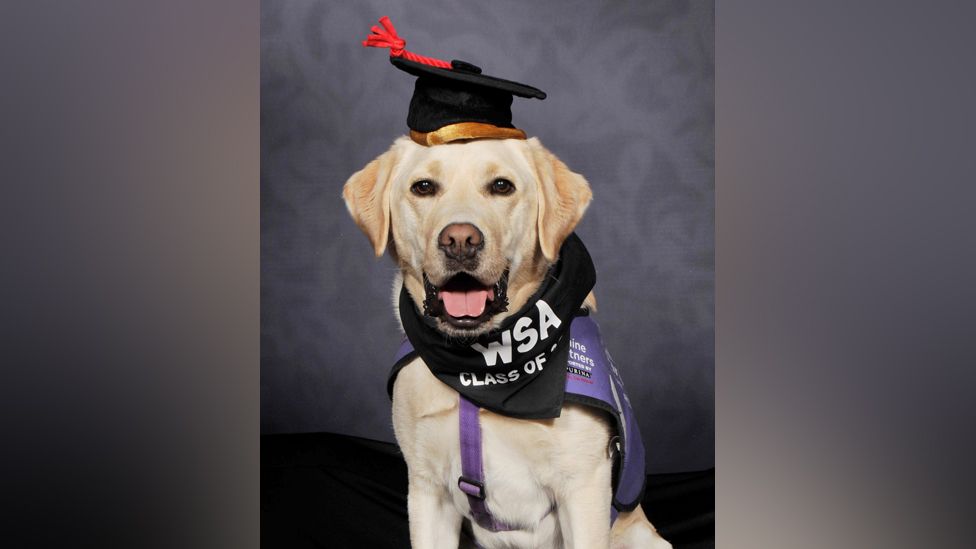-

-
-
Loading

Loading

Packing for university typically doesn't involve dog supplies, but for students in the UK's growing assistance dog community, these items are essential. Millie, a BBC Young Reporter winner who goes by they/them pronouns, is raising awareness about the important support these dogs provide and the challenges they face. Millie had planned to bring their dog Reggie to experience their first year of university, but Reggie didn't pass the training. Millie shares their story and interviews two other students who have brought their dogs to campus. Millie, who is autistic and deals with chronic pain and anxiety, created an online information hub called Cate UK to fill the gap in reliable assistance dog information during college. However, there is still confusion over the difference between guide dogs and assistance dogs, as well as a lack of clarity regarding legal guidance, training standards, and funding. This confusion can cause misunderstandings between universities and students. The high cost of training also leads to long waiting lists for assistance dogs. Some individuals, including Millie, have resorted to training their own dogs. Millie spent a significant amount of money and emotional energy on training Reggie, but ultimately had to accept that he couldn't be an assistance dog. Despite this setback, Millie is still hopeful that an assistance dog may join them in the future. Another student, Morgan, who lives with anxiety and multiple health conditions, including chronic fatigue and Tietze syndrome, experienced a decline in their health during college. Eventually, they began looking into assistance dogs and found their current dog, Sabbath. Sabbath has had a huge impact on Morgan's routine and has greatly increased their attendance at university. Sabbath helps with various tasks, such as reminding Morgan to take medication and recognizing oncoming health issues. The university has been supportive of Sabbath's presence on campus. Jessie, who uses a wheelchair and lives with anxiety and chronic pain, has been paired with a yellow Labrador named Oscar through the charity Canine Partners. Oscar provides physical assistance, such as opening doors and picking up dropped items, but his emotional support has been the most transformative for Jessie. They even created a book from Oscar's perspective to raise awareness about assistance dogs. Oscar has made a significant positive impact on Jessie's university experience and they are grateful for his companionship. Overall, these students highlight the incredible benefits that assistance dogs bring to university life and the need for greater awareness and support in society.